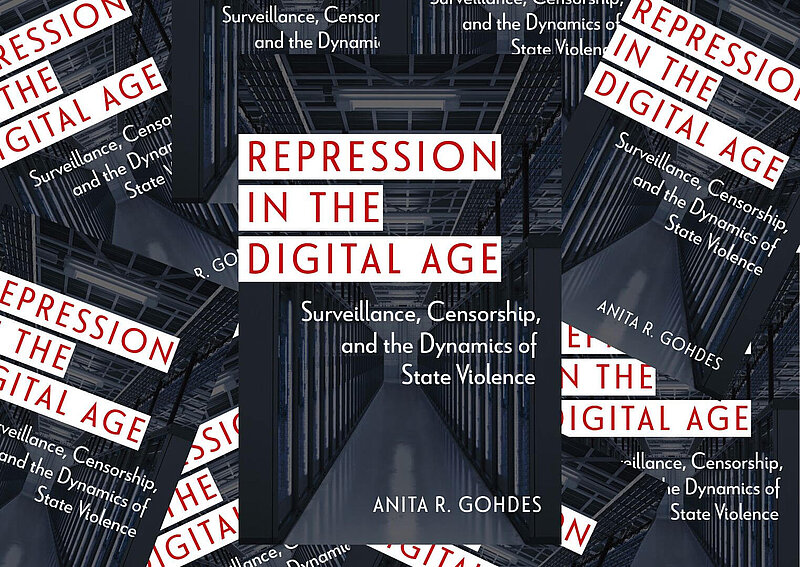
The Professor of International and Cyber Security talks about her new book Repression in the Digital Age in an interview.
Anita Gohdes, Professor of International and Cyber Security at the Hertie School's Centre for International Security, is the author of Repression in the Digital Age: Surveillance, Censorship, and the Dynamics of State Violence, the first book to study how digital technology supports traditional, violent state repression. In an interview, she talks about her book, how digital technology is used in conflict situations, and why we should not give up hope on digital technology.
Prof. Gohdes, how is digital technology linked to repression, and how does your book explore this link?
Over the past decades, internet access has exploded across the world. Although liberal democracies were the earliest adopters of the internet, autocratic countries have made strides in catching up. And while governments have worked hard to expand internet access for their own people, many have simultaneously made sure that they have the tools to control the flow of information that comes with this access.
As digital communication becomes a bedrock of modern opposition and protest movements, understanding the role of technology in repression has become more important than ever. In my book I study how information control has changed in the digital age, and how access to new digital technologies has transformed violent state repression. I argue that digital surveillance and censorship have taken on a stronger role in states’ repressive strategies, both in war and in peacetime. I draw on evidence from large-scale quantitative analyses of violence perpetrated in the Syrian conflict and qualitative case evidence from internet shutdowns and protest crackdowns in Iran, and I present a global comparative analysis of internet outages and state repression.
What role does digital technology play in current conflicts such as Russia’s war in Ukraine?
Whether it’s the wars fought in Ethiopia and Yemen or the Russian invasion of Ukraine, we have seen that whoever controls the internet can shut down access as part of military offensives. This not only hampers the opposition’s ability to coordinate and fight back, it also takes a huge toll on civilians as they can’t find out where it’s safe to go, whether their relatives and friends are safe, and where humanitarian aid is available. By controlling the internet, aggressors also gain access to vast amounts of data – an important intelligence advantage. We have seen that when Russian forces invade or occupy a territory within Ukraine, digital annexation is almost always an immediate consequence.
The internet can drive democratic change (such as in the Arab Spring), but it can also be used for repression and surveillance, as your book shows. Which role will prevail in the future?
When I started researching digital repression back in 2012, public discourse largely celebrated the internet as a hugely democratising and ‘liberating’ force. However, even back then Syrian activists were telling me about their government’s efforts to shut down, monitor and curtail their online spaces. Not long after, Edward Snowden’s leaks showed that the potential for surveillance on the internet was much larger than we could have ever known. Having studied the supportive role of digital technology in state repression, my conclusion is that this potential is currently tipping the balance towards repressive regimes. But rather than trying to further limit people’s abilities to harness the free flow of information for positive change, we should all be working to strengthen the position of those who use the internet in their struggles for accountability, human rights and community building. It’s important to remember: no repressive regime would be investing so heavily in digital technologies and clamping down on social media if they were not genuinely afraid of the power of open information.
You can order your copy of Repression in the Digital Age: Surveillance, Censorship, and the Dynamics of State Violence from Oxford University Press as of 15 December. The book is also available as an ebook.
The Hertie School is not responsible for any content linked or referred to from these pages. Views expressed by the author/interviewee may not necessarily reflect the views and values of the Hertie School.
More about our expert
-
Anita Gohdes, Professor of International and Cyber Security
